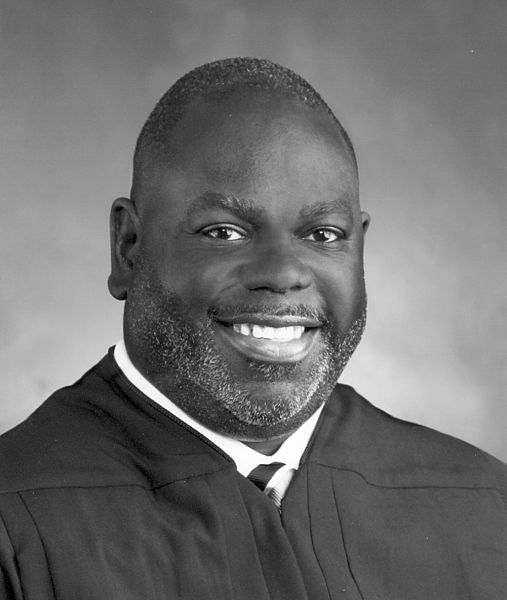Federal judge compares Trump's attacks on judiciary to KKK tactics

President Donald Trump. Photo from Shutterstock.com.
In a speech last week at his law school alma mater, a Mississippi federal judge compared President Donald Trump’s attacks on the judiciary to tactics used by segregationists and lawyers for the Ku Klux Klan.
U.S. District Judge Carlton Reeves of Jackson, Mississippi, a black appointee of President Barack Obama, made clear in footnotes to his speech that he was criticizing Trump for his tweets, his remarks to reporters and a White House statement.
Reeves included mentions of Trump’s comments about the judicial process being a “laughingstock” and about U.S. District Judge Gonzalo Curiel, described by Trump as “a very hostile judge … who happens to be, we believe, Mexican.”
BuzzFeed News broke the news of Reeves’ speech. How Appealing links to a video and additional coverage, including stories by the Washington Post and the Mississippi Clarion Ledger.
Reeves gave his remarks April 11 at the University of Virginia School of Law, where he received the Thomas Jefferson Foundation Medal in Law. He said Jefferson framed the nation’s greatest truth—that all men are created equal—despite being a slaveholder.
Reeves said there have been three waves of assaults on the judiciary. The first happened following the Civil War, and the second was after the Brown v. Board of Education decision desegregating schools. In his hometown of Yazoo City after the landmark decision, he said, a group of 1,500 white citizens formed a Citizens Council to protect white supremacy. Segregationists signed a Southern Manifesto opposing the decision and sought to strip courts of the power to hear civil rights claims, he said.
The third wave is happening now, Reeves said, citing criticism by Trump. Here is a key paragraph from Reeves’ prepared speech:
 U.S. District Judge Carlton Reeves. Photo from Wikimedia Commons.
U.S. District Judge Carlton Reeves. Photo from Wikimedia Commons.
“When politicians attack courts as ‘dangerous,’ ‘political’ and guilty of ‘egregious overreach,’ you can hear the Klan’s lawyers, assailing officers of the court across the South. When leaders chastise people for merely ‘us[ing] the courts,’ you can hear the Citizens Council, hammering up the names of black petitioners in Yazoo City. When the powerful accuse courts of ‘open[ing] up our country to potential terrorists,’ you can hear the Southern Manifesto’s authors, smearing the judiciary for simply upholding the rights of black folk. When lawmakers say, ‘We should get rid of judges,’ you can hear segregationist senators, writing bills to strip courts of their power. And when the executive branch calls our courts and their work ‘stupid,’ ‘horrible,’ ‘ridiculous,’ ‘incompetent,’ ‘a laughingstock,’ and a ‘complete and total disgrace,’ you can hear the slurs and threats of executives like George Wallace, echoing into the present.”
Reeves said it was beneficial to criticize judicial reasoning because it can improve the search for truth. “Judges get it wrong, all the time,” he said. “That includes me.”
“But the slander and falsehoods thrown at courts today are not those of a critic, seeking to improve the judiciary’s search for truth,” Reeves said. “They are words of an attacker, seeking to distort and twist that search toward falsehood.”
Reeves was recently in the news because of a critical dissent by Judge Edith Brown Clement of the 5th U.S. Circuit Court of Appeals at New Orleans. Clement criticized the majority for failing to completely block a decision by Reeves to adopt a new electoral map for a Mississippi state Senate seat in a racial gerrymandering case. She noted that the majority had called Reeves’ decision narrowly tailored. “Agreed—it is ‘narrowly tailored’ to win [a black senator] the election,” she wrote.
Reeves mentioned a different 5th Circuit judge, Edith Jones, in a portion of his speech criticizing efforts to curtail jurisdiction of federal courts. He said the efforts include heightened pleading standards, mandatory arbitration, and a call to eliminate prisoner civil rights cases from federal dockets. In footnote 130—his last footnote of the speech—Reeves said Jones backed the idea to eliminate prisoner cases.
Reeves also called for a more diverse federal judiciary. Out of the federal judges confirmed during the Trump administration, 90% have been white and “barely 25%” are women, he said.



